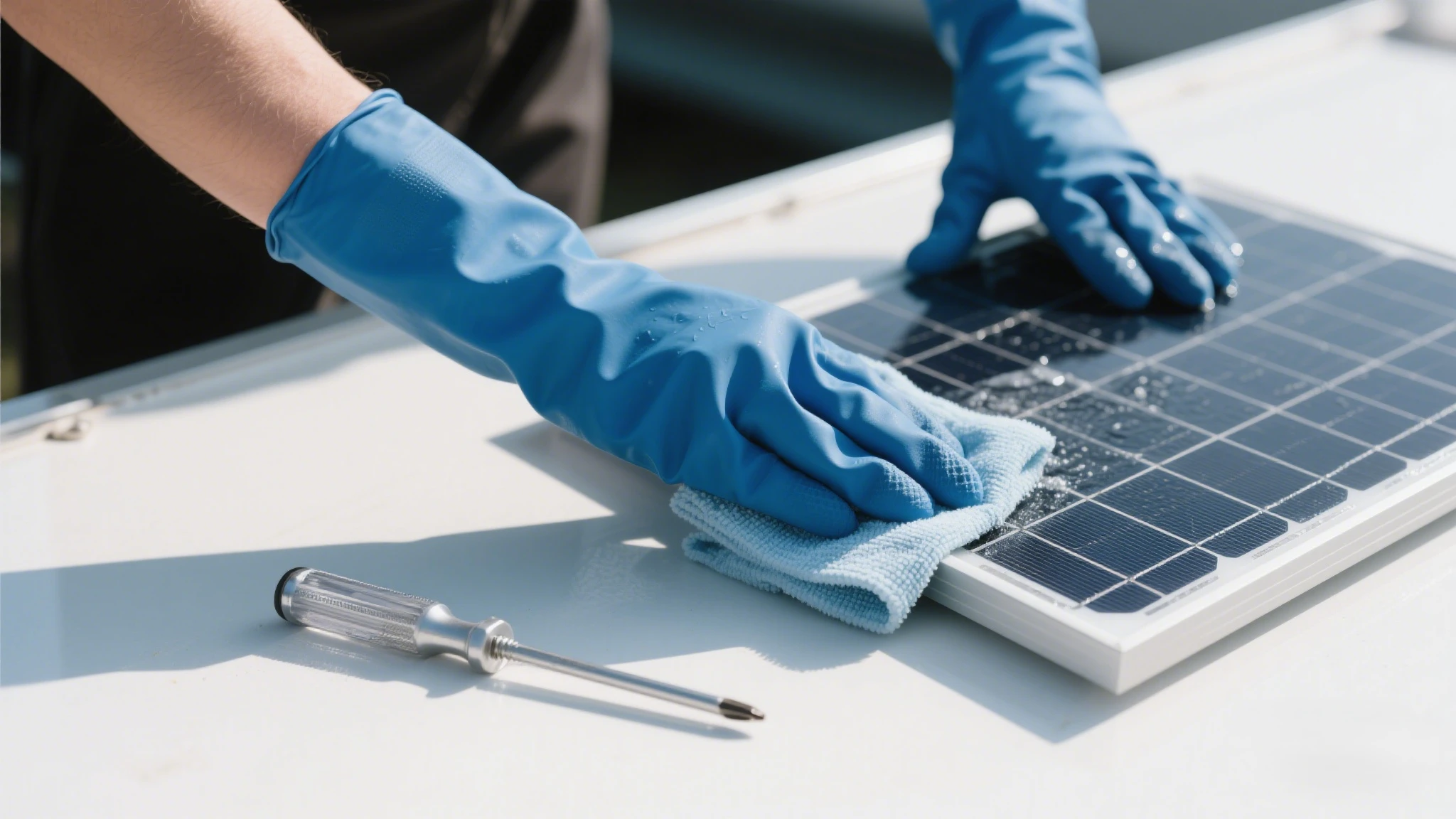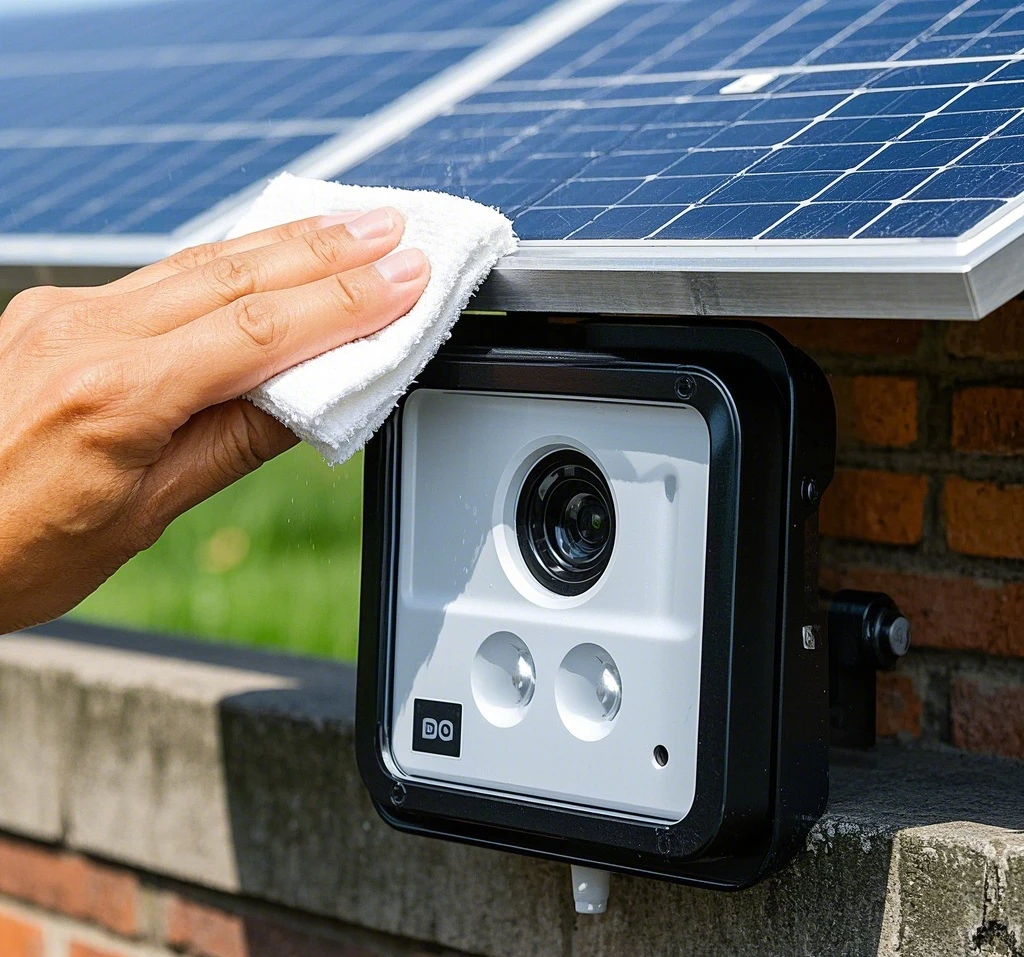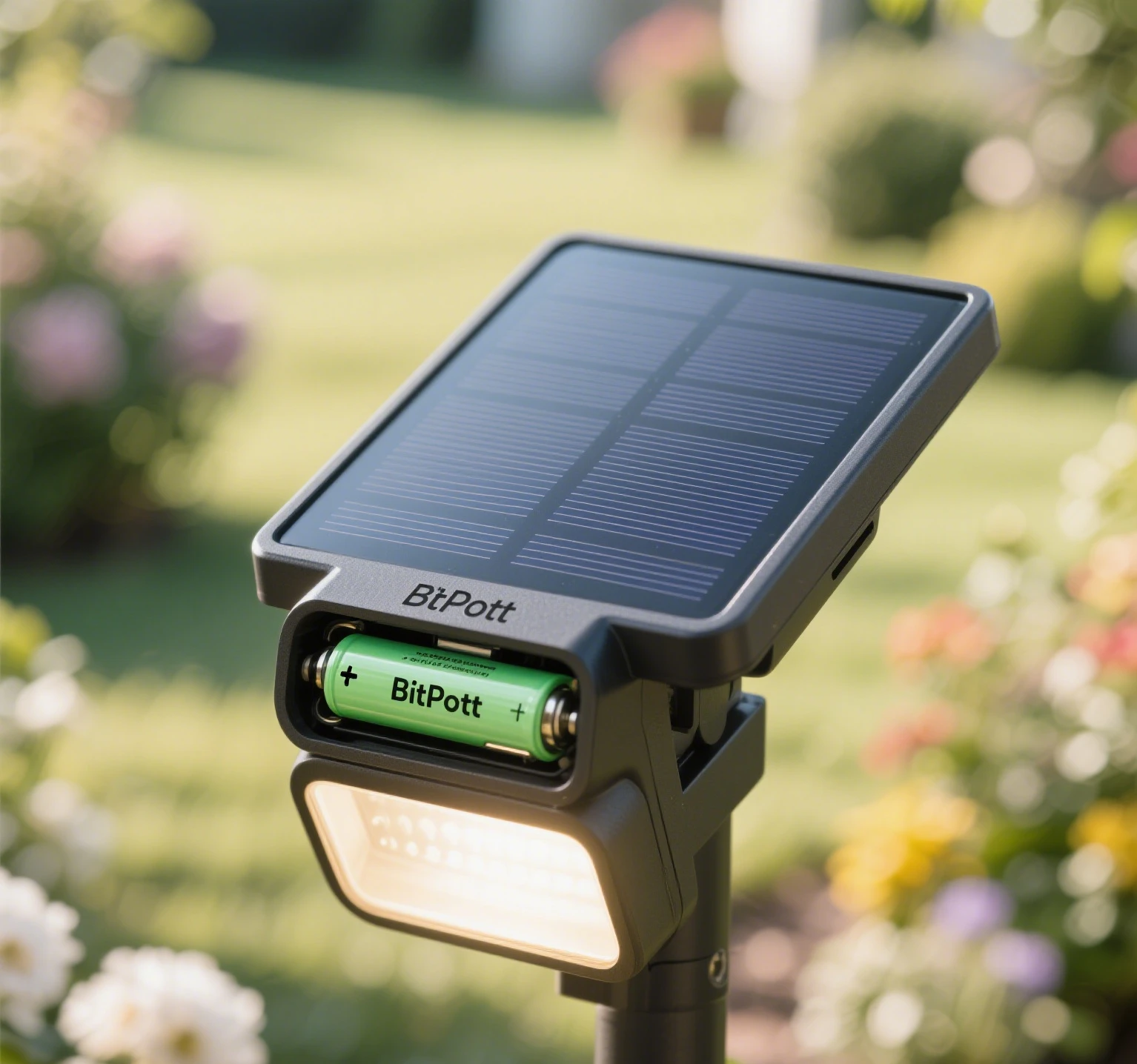Solar panels are a cornerstone of renewable energy, transforming sunlight into electricity with remarkable efficiency. However, their performance hinges on one critical factor: cleanliness. Dust, bird droppings, and debris can reduce solar panel efficiency by up to 25%, according to the National Renewable Energy Laboratory. For tech enthusiasts and innovators, maintaining solar-powered lighting isn’t about mundane scrubbing—it’s about leveraging smart cleaning solutions and cutting-edge technology. This article dives into unconventional, tech-driven methods to keep solar panels spotless, spotlighting how Bitpott’s innovative designs enhance these approaches. From automated cleaning systems to DIY solar cleaning hacks, we’ll explore creative ways to ensure your solar outdoor lights shine bright, appealing to those who love pushing the boundaries of solar technology.

Why Clean Solar Panels Matter
Dirt on solar panels acts as a barrier, blocking sunlight and slashing energy output. A study from Boston University found that soiling can cause a 24% efficiency drop in just one month in dusty environments. For solar lights, this translates to dimmer illumination and shorter runtimes. Traditional cleaning methods—manual scrubbing with water and soap—are labor-intensive, water-heavy, and risky for rooftop installations. Instead, tech-savvy users are turning to innovative cleaning techniques that save time, reduce water use, and boost solar panel performance.
Genius Hack #1: Automated Cleaning Robots
Automated cleaning systems are revolutionizing solar panel maintenance. Unlike manual methods, which can be inconsistent and hazardous, robotic cleaners like the IFBOT X3 offer precision and sustainability. These devices use waterless cleaning technology, employing microfiber brushes to remove dust without scratching panels. A case study from Solabot Technologies showed a desert solar farm boosting energy output by 20% after implementing a dry cleaning system, saving thousands of liters of water per cleaning session. For solar-powered lighting, such robots ensure consistent performance in low-light conditions, where every photon counts.
Bitpott’s solar panels are designed with smooth-surface monocrystalline cells, making them ideal for robotic cleaning. Their IP67 waterproof rating protects against dust ingress, complementing automated cleaning systems by reducing residue buildup. Users on Reddit’s r/solar community praise such robots for their ability to navigate rooftop arrays, eliminating the need for risky ladder climbs. By integrating smart cleaning solutions, Bitpott’s solar lights maintain peak solar panel efficiency even in dusty or shaded environments.
Genius Hack #2: Electrostatic Dust Repulsion
A breakthrough from MIT engineers offers a futuristic cleaning method: electrostatic dust repulsion. This technique applies a thin, transparent conductive layer to solar panels and passes an oppositely charged electrode over the surface. Dust particles, charged by the electrode, are repelled without water or physical contact. The system works in humidity levels above 30%, making it viable even in arid regions during early mornings. MIT’s tests showed this method could restore solar panel performance to near-original levels, with minimal energy input from the panels themselves.
For Bitpott’s solar outdoor lights, this hack is a game-changer. Their high-efficiency panels are compatible with such coatings, enhancing clean energy production in low-light conditions. While not yet widely available for residential use, this technology is a glimpse into the future of solar panel maintenance, appealing to innovators eager to adopt cutting-edge solar solutions. Pairing this with Bitpott’s smart light sensors, which adjust brightness to conserve energy, ensures optimal performance in diverse settings.
Genius Hack #3: DIY Arduino-Based Cleaning System
For DIY enthusiasts, building an Arduino-based cleaning system offers a budget-friendly, tech-driven solution. Research from Bennett University demonstrated a semi-automatic wiper mechanism that increased solar panel efficiency by 1.2-3% using minimal water. The setup involves an Arduino microcontroller, a motor-driven wiper, and sensors to detect dust levels. A Reddit user in r/homelab shared their success with a similar system, using a light intensity sensor to trigger cleaning when output dropped. This DIY solar cleaning hack is perfect for small-scale solar lights, offering customization and control.
Bitpott’s solar garden lights benefit from such systems due to their modular panel design, which accommodates aftermarket attachments like wipers. By programming the Arduino to activate cleaning during low-energy periods (e.g., early morning), users can maintain solar panel performance without manual effort. This hack appeals to tech hobbyists who enjoy blending renewable energy with automation technology, ensuring their solar-powered lighting stays efficient in indirect sunlight.

Genius Hack #4: Self-Cleaning Coatings
Self-cleaning coatings are an emerging solar technology that reduces maintenance needs. Hydrophobic coatings, like those being developed by ZNShine Solar, cause water to bead up and roll off, carrying dirt with it. Rain alone can clean coated solar panels, minimizing manual intervention. A study from the Journal of Renewable Energy noted that such coatings could reduce soiling losses by up to 15% in high-precipitation areas. For regions with less rain, photocatalytic coatings use UV light to break down organic debris, keeping panels pristine.
Bitpott’s solar panels are engineered with anti-soiling surfaces, enhancing compatibility with these coatings. A case study from a German community garden using Bitpott’s solar LED lights showed that coated panels maintained 95% efficiency after six months, compared to 80% for uncoated panels. This innovative cleaning technique is ideal for users seeking low-maintenance outdoor lighting solutions, especially in urban or pollen-heavy environments where solar panel maintenance is challenging.
Genius Hack #5: Drone-Assisted Cleaning
Drones equipped with dry cleaning brushes or low-pressure water jets offer a high-tech solution for solar panel cleaning. A Reddit post on r/Business_Ideas described a drone deploying mini-bots to clean solar panels, mapping dirty areas with precision. Solabot’s case study of a desert solar farm reported a 50% reduction in maintenance costs using drone-assisted cleaning, with solar panel efficiency improving by 20%. These systems are particularly effective for large or hard-to-reach installations, reducing safety risks and water usage.
For Bitpott’s solar outdoor lights, drone cleaning complements their durable panel construction, which withstands gentle brushing without damage. While drones are more common in commercial settings, hobbyists can adapt consumer drones with lightweight cleaning attachments, making this a viable DIY solar cleaning hack for tech enthusiasts. This approach ensures clean energy production in remote or shaded locations, aligning with Bitpott’s focus on versatile solar technology.
Best Practices for Implementing These Hacks
To maximize these smart cleaning solutions, consider the following:
- Timing: Clean solar panels early in the morning or late evening when they’re cool to avoid thermal stress. This is especially important for automated cleaning systems to prevent damage.
- Safety: For DIY solar cleaning hacks, use ground-based tools like extendable brushes or drones to avoid rooftop risks. Always wear safety gear, as recommended by Energy Matters.
- Monitoring: Use smart sensors to track solar panel performance. A drop in output, detectable via apps or Arduino setups, signals cleaning needs.
- Environment: In dusty areas, prioritize waterless cleaning technology like drones or electrostatic systems to conserve resources, as noted in Solabot’s desert case study.
- Maintenance: Regularly inspect solar panels for scratches or coating wear, ensuring compatibility with innovative cleaning techniques.
The Bitpott Advantage
Bitpott’s solar lights are designed to thrive with these smart cleaning solutions. Their monocrystalline panels maximize solar panel efficiency in low-light conditions, while IP67 durability ensures resilience during cleaning. A case study from a Scottish business using Bitpott’s solar security lights showed a 30% cost saving after adopting an automated cleaning system, with panels maintaining 90% efficiency despite frequent rain and shade. This highlights how Bitpott’s solar technology supports cutting-edge solar solutions, making maintenance easier and more effective.
The Future of Solar Panel Cleaning
The future of solar panel maintenance lies in automation and smart technology. Innovations like AI-based cleaning schedules, as explored by SmartHelio, use data to optimize cleaning frequency, reducing costs and boosting clean energy production. Self-cleaning coatings and robotic cleaners are becoming more accessible, promising a shift from labor-intensive methods to seamless, eco-friendly solutions. For tech enthusiasts, experimenting with Arduino-based systems or drone attachments offers a playground for innovation, aligning with the growing demand for renewable energy.
Why These Hacks Matter
For tech lovers and innovators, these smart cleaning solutions transform solar panel maintenance from a chore into an exciting challenge. By adopting automated cleaning systems, electrostatic repulsion, DIY Arduino setups, self-cleaning coatings, or drone-assisted cleaning, you can keep your solar-powered lighting at peak performance. Bitpott’s solar panels, with their high-efficiency design and durable construction, amplify the effectiveness of these hacks, ensuring reliable eco-friendly lighting in any environment. Whether you’re illuminating a garden or securing a property, these innovative cleaning techniques empower you to harness solar technology like a pro, proving that clean panels mean brighter lights and a greener future.


Leave a Reply